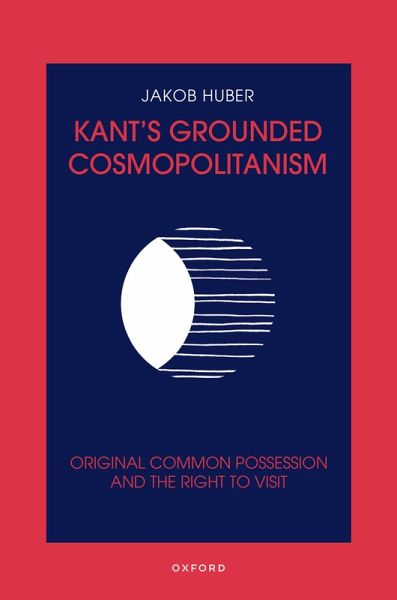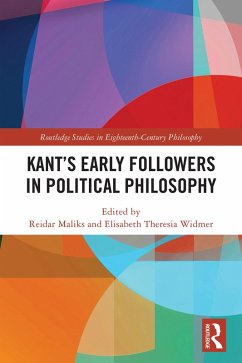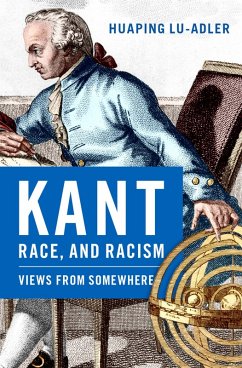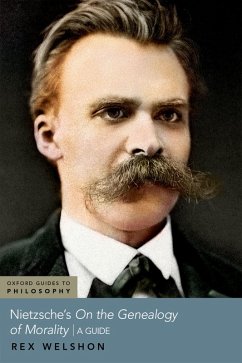
Kant's Grounded Cosmopolitanism (eBook, PDF)
Original Common Possession and the Right to Visit
Versandkostenfrei!
Sofort per Download lieferbar
38,95 €
inkl. MwSt.
Weitere Ausgaben:

PAYBACK Punkte
19 °P sammeln!
Two kinds of cosmopolitan vision are typically associated with Kant's practical philosophy: on the one hand, the ideal of a universal moral community of rational agents who constitute a 'kingdom of ends' qua shared humanity. On the other hand, the ideal of a distinctly political community of 'world citizens' who share membership in some kind of global polity. Kant's Grounded Cosmopolitanism introduces a novel account of Kant's global thinking, one that has hitherto been largely overlooked: a grounded cosmopolitanism concerned with spelling out the normative implications of the fact that a plur...
Two kinds of cosmopolitan vision are typically associated with Kant's practical philosophy: on the one hand, the ideal of a universal moral community of rational agents who constitute a 'kingdom of ends' qua shared humanity. On the other hand, the ideal of a distinctly political community of 'world citizens' who share membership in some kind of global polity. Kant's Grounded Cosmopolitanism introduces a novel account of Kant's global thinking, one that has hitherto been largely overlooked: a grounded cosmopolitanism concerned with spelling out the normative implications of the fact that a plurality of corporeal agents concurrently inhabit the earth's spherical surface. It is neither concerned with a community of shared humanity in the abstract, nor of shared citizenship, but with a 'disjunctive' community of earth dwellers, that is, embodied agents in direct physical confrontation with each other. Kant's grounded cosmopolitanism as laid out in the Doctrine of Right frames the question how individuals relate to one another globally by virtue of concurrent existence and derives from this a specific set of constraints on cross-border interactions.
Dieser Download kann aus rechtlichen Gründen nur mit Rechnungsadresse in A, B, BG, CY, CZ, D, DK, EW, E, FIN, F, GR, HR, H, IRL, I, LT, L, LR, M, NL, PL, P, R, S, SLO, SK ausgeliefert werden.













